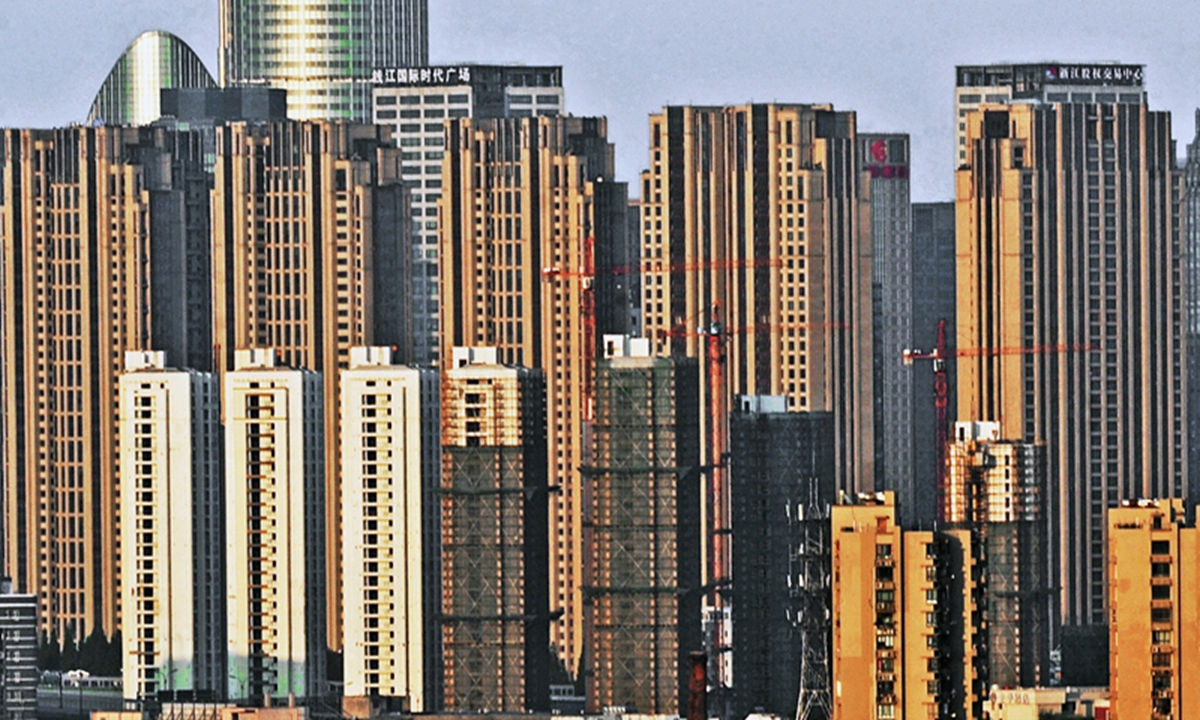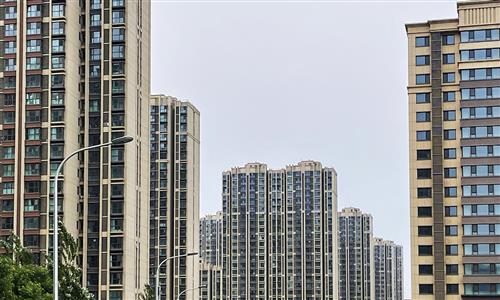
real estate Photo:Xinhua
China's real estate market has witnessed some positive signs of stabilization, and its long-term healthy development has a relatively good foundation, Kang Yi, head of the National Bureau of Statistics, told a press conference on Wednesday.
Declines in real estate investment and property sales narrowed last year. Investment in real estate development fell by 9.6 percent year-on-year, with the rate of decline narrowing by 0.4 percentage points from 2022.
The rate of decline in residential housing sales narrowed significantly, Kang said. The sales area of commercial housing fell by 8.5 percent, narrowing 15.8 percentage points from 2022. The sales volume fell 6.5 percent in 2023, down 20.2 percentage points compared with the previous year.
The area of housing completed by developers in 2023 increased 17 percent on a yearly basis.
Kang said that the long-term healthy development of the real estate market has a relatively good foundation, and the rate and quality of urbanization still has a lot of scope to improve. The country has great potential to build a new mode of real estate development, the official noted.
"The urbanization rate in 2023 stood at 66.16 percent, compared with about 80 percent in developed economies, indicating there are still more than 10 points for improvement. China's urbanization remains in the process of continuous growth," Kang noted.
The urbanization rate increased by an average of 0.93 percentage points annually over the past five years, and more than 10 million rural residents enter cities each year, which will produce rising new demand for housing, the official said.
Kang said that the demand to improve housing quality remains acute, which will also form an important driving force of the real estate market.
The demand for improved housing in the 70 surveyed medium-sized and large cities is obvious, as evidenced by the fact that the turnover of secondhand homes in those 70 cities exceeded that of new homes, according to Kang.
Yan Yuejin, research director at Shanghai-based E-house China R&D Institute, told the Global Times on Wednesday that in 2023, both the supply and demand sides were under pressure, which indicates that the effort to stabilize the real estate sector has to be further consolidated.
"However, some of the financial risk issues have been suppressed or better prevented and resolved, including at the corporate and household levels," Yan noted.
China has made stabilizing the real estate market a top priority for economic work in 2024. The tone-setting Central Economic Work Conference held in December called for active and prudent efforts to defuse risks in the sector, address the reasonable financing needs of real estate enterprises and accelerate the development of a new model for the sector.
"The new mode of real estate development is being actively constructed, which is the fundamental solution to the problem of real estate development," Kang said.
Housing and Urban-Rural Development Minister Ni Hong said at the ministry's annual work conference held in December 2023 that the construction of affordable housing and public infrastructure for both normal and emergency use, as well as urban renewal, will be pushed forward. Another focus will be addressing the housing needs of new urban residents, young people and migrant workers.
Kang noted that these projects will help address problems in the housing market and boost related investment and consumption, promoting the healthy development of the real estate market.
Yan said that in 2024, with the stable recovery of the country's economy and the adjustment of the real estate market, the property market will show healthier development and confidence will be further enhanced.
Global Times

